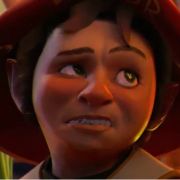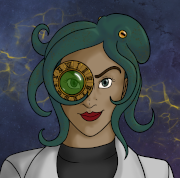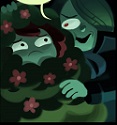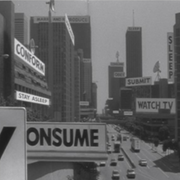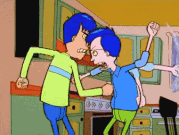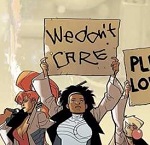|
SlipUp posted:Ever try writing something more visual? A short movie or even maybe a comic book? That's the problem, I come from a screenwriting background.
|
|
|
|

|
| # ? May 10, 2024 06:35 |
|
I really appreciate the feedback guys, thank you for the advice! It's obvious, but combining prose with dialogue is hard. (I mostly write for video games, which is probably why I'm so fixated on following every bit of dialogue with physicality- I'm used to writing cutscenes where we literally use movements and action slates as punctuation between dialogue beats.)
|
|
|
|
If you’re looking to get away from overly descriptive writing (which is a good idea imo) then I would recommend reading lit from before movies became popular to understand how authors described action and settings before the advent of movies. That includes a good chunk of Victorian lit though not exclusively. Chandler and Hemmingway are good for this sort of thing. It’s old language but it’s worth looking at to understand good writing.
|
|
|
|
Djeser posted:Cheap trick: Instead of using a dialogue tag, pair the dialogue with action from that character. Yeah, I like to use this method as well. The benefits are that it gives more action to the scene instead of simply exchanging lines back and forth, like talking heads, and it can show emotion through the characters actions. But like all things, it can be overused. Don't have EVERY piece of dialogue feature an action. Don't use that as a way to replace "said" all the time. That example from the Witcher overuses the lack of attribution. You don't need to attribute every line or add an action to every line, but just straight dialogue with no tags or actions is just as repetitive. In this case, it's clear who is speaking, but if you're not careful, or the voices aren't distinct, the reader could lose track of who is speaking and have to backtrack, and no one likes that.
|
|
|
|
Just got a form letter rejection from an agency that I had already long thought wasn't going to respond at all. Yay for necromancy? Regarding actions paired with speech, I try to think about impact. A vehement conversation might have lots of actions/gesturing between characters while a casual or deep conversation might be one where you remove tags altogether- think about whether you want the words or the actions to take precedence in the reader's mind.
|
|
|
|
recently did outlines for chapter one of my project. my only real issue is pacing and how to introduce characters...which i'm struggling with. there's like a total 4 characters to be introduced in like 30 pages or so. (this is a comic btw, i'm not sure if this make sense to posted here but ey)
|
|
|
|
HIJK posted:If you’re looking to get away from overly descriptive writing (which is a good idea imo) then I would recommend reading lit from before movies became popular to understand how authors described action and settings before the advent of movies. That includes a good chunk of Victorian lit though not exclusively. Chandler and Hemmingway are good for this sort of thing. Every novel by Chandler and Hemingway was written* during the so-called Golden Age of Hollywood. Chandler wrote the script for five feature length films, including the classics Double Indemnity, Blue Dahlia, and Stranger on a Train (based on the Patricia Highsmith novel) before he wrote what is probably his second-most-famous book, The Long Goodbye. His most famous book, The Big Sleep, was released in 1939, the same year as Gone With the Wind and The Wizard of Oz. Hemingway has the slight advantage over Chandler, in that he has zero film credits to his name on wikipedia, but on the other hand: quote:To Have and Have Not (1944) is famous not only for the first pairing of actors Humphrey Bogart (1899–1957) and Lauren Bacall (1924–2014), but also for being written by two future winners of the Nobel Prize in Literature: Ernest Hemingway (1899–1961), the author of the novel on which the script was nominally based, and William Faulkner (1897–1962), who worked on the screen adaptation. Neither of these dudes were writing before the advent of film, or even the mass popularity of film, and if you want to see how authors described action and setting before movies, you cannot look to Chandler or Hemingway for examples. And while I also cannot agree with the general recommendation to look at pre-modern authors to see examples of less-descriptive writing (there is a reason why the opposite is usually recommended....), I do highly recommend looking at some Dickensian poo poo to remind yourself of what a true wide-angle opening shot can look like in prose: Charles loving Dickens posted:It was the best of times, it was the worst of times, it was the age of wisdom, it was the age of foolishness, it was the epoch of belief, it was the epoch of incredulity, it was the season of Light, it was the season of Darkness, it was the spring of hope, it was the winter of despair, we had everything before us, we had nothing before us, we were all going direct to Heaven, we were all going direct the other way--in short, the period was so far like the present period, that some of its noisiest authorities insisted on its being received, for good or for evil, in the superlative degree of comparison only. I know you loving tuned out at the first 5 words, and decided to have another flashback to your high school english class instead of actually reading a thing, so maybe close your eyes, take some deep breaths, imagine finally telling that dumb teacher to go to hell, and then actually read the hilarious loving McSweeney's article Dickens wrote a couple centuries ago. Edit: it has been brought to my attention that it might look like I am talking to HIJK when I say "you" here, but rest assured, dear reader, that I am not. I am talking to YOU! To the extent this applies to you. If your high school english class didn't inspire a loathing for Dickens, then i invite you to enjoy it either again, or fresh and unfettered by the chains of essays on the Golden Thread. And I apologize to HIJK for being a jerk. * Do you want to go through a bunch of hoopla to argue that like two of these books were written several years before they were published? because if for some reason you want to go to bat for that, I will loving look up the original manuscripts. But neither of these guys were even BORN when the Lumière brothers screened their short films in Paris. So why don't we save ourselves some time with that "argument. Dr. Kloctopussy fucked around with this message at 10:00 on Feb 20, 2019 |
|
|
|
Dickens is legit amazing and hilarious and you should totally read him.
|
|
|
|
I read David Copperfield and I liked it
|
|
|
|
Just got a form rejection on a full request. Womp-womp. Not the first one of those I've gotten by a long stretch, but it still sucks each time it happens.
|
|
|
|
Hey, I was hoping someone here might be able to help me with the conventions regarding dashes in dialogue. I'm using Australian/British English, if that makes a difference. To give some quickly sketched examples: 1. “Who was—?” Naomi gestures indecisively. 2. “Why—why do you think I want anything?” Ryan stammers. In 1, is it better to use an em dash or ... when someone abruptly trails off, or is this purely a preference thing? In 2, is an em dash with no spaces on either side correct when trying to convey someone stammering or stop starting their sentence. And lastly, is it alright to end a paragraph abruptly with an em dash to indicate a disruptive— EDIT: Bonus question, actually. In the sentence (“Stay here.” Naomi motions for Ryan to wait, before creeping towards the burnt-out pub.), should I cut the comma before before? Melusine fucked around with this message at 02:02 on Feb 16, 2019 |
|
|
|
(I'm American FWIW, so maybe different rules), I've heard ... is used for trailing off and em dash is used for interruptions. I think it's probibly more a preference than style manual thing I think though. My personal impression is in 1 .. for 2 the dash looks alright. E: Bonus question I missed: the comma looks alright to me. Also, I just "attended" an online writing confrence, called writeoncon, specificly aimed at kidlit writiers (picture books, chapter books, middle grade and young adult), though there was advice appliciable to older audiences as well. I don't know if there are other kidlit writers here, but I'd recomended it, espeically for the cost. It was pretty good with a large number of videos and podcasts with some interactive stuff (Q&As, pitch sessions). The whole thing was only $10-20 ($15 if you want to access everything for an extra month after, $20 if you want to be able to access past years stuff for a month after). Foolster41 fucked around with this message at 02:57 on Feb 16, 2019 |
|
|
|
quote:“Who was—?” Naomi gestures indecisively. quote:“Why—why do you think I want anything?” Ryan stammers. quote:“Stay here.” Naomi motions for Ryan to wait, before creeping towards the burnt-out pub.
|
|
|
|
Dr. Kloctopussy posted:Every novel by Chandler and Hemingway was written* during the so-called Golden Age of Hollywood. Well I’m sorry I got my eras mixed up, but I was trying to suggest authors that I found useful for describing scenes and actions without being overly cinematic. I’m sorry that you took it so personally, and that you decided that I hated English class (I didn’t, English class was relatively enjoyable to me). I also have no particular desire to argue with you regarding these books? So why are you making GBS threads yourself so hard?
|
|
|
|
Nae! posted:Just got a form rejection on a full request. Womp-womp. Not the first one of those I've gotten by a long stretch, but it still sucks each time it happens. Yeah I just got a full request and I'm just counting down the days until I get that tasty rejection. Honestly I'm just glad my query and samples were intriguing enough for someone to request a full. Gotta stay positive....
|
|
|
|
Al Cu Ad Solte posted:Yeah I just got a full request and I'm just counting down the days until I get that tasty rejection. Honestly I'm just glad my query and samples were intriguing enough for someone to request a full. Gotta stay positive.... I do try to stay positive but after five novels of full requests>form rejections, it's hard to keep upbeat about it. I know I've just got to keep writing and keep trying, but yeesh, it's not fun being kicked in the dick a dozen times a year.
|
|
|
|
Nae! posted:I do try to stay positive but after five novels of full requests>form rejections, it's hard to keep upbeat about it. I know I've just got to keep writing and keep trying, but yeesh, it's not fun being kicked in the dick a dozen times a year. It would be nice to know what they wanted, what was wrong and what you could try to change
|
|
|
|
Nae! posted:I do try to stay positive but after five novels of full requests>form rejections, it's hard to keep upbeat about it. I know I've just got to keep writing and keep trying, but yeesh, it's not fun being kicked in the dick a dozen times a year. Same, man. Been querying since 2016 across 3 novels and it's difficult to tell what exactly isn't resonating with a particular agent since 99% of the time they don't give any kind of feedback. Just gotta keep writin' I guess.
|
|
|
|
On the flip side I first read Steinbeck as a kid, and even then I remember thinking to myself "This is well-written and everything, but there are way too many words- you could've killed the kid's pony in a paragraph instead of five pages".
|
|
|
|
Burkion posted:It would be nice to know what they wanted, what was wrong and what you could try to change Until you get two full rejects with extremely helpful bullet-point notes about what they liked/disliked and they contradict each other utterly. 
|
|
|
|
MockingQuantum posted:Springboarding a bit off of the cell phone discussion from a couple of days ago: In the pivotal moment, your hero pulls out their cellphone and dials in 911 and the murderghost answers.
|
|
|
|
Anomalous Blowout posted:Until you get two full rejects with extremely helpful bullet-point notes about what they liked/disliked and they contradict each other utterly. wow that sounds like hell on earth, god bless you
|
|
|
|
Megazver posted:In the pivotal moment, your hero pulls out their cellphone and dials in 911 and the murderghost answers.
|
|
|
|
The ghost pulls some Chronicle poo poo, rips the phone out of the protagonist's hand, and uses it to take selfies of its murders.
|
|
|
|
These are all fantastic ideas that I'm sure someone should use. The more I've mulled around the plot, the more I think it makes sense for the setting to kind of exist outside of normal rules of reality entirely, so it's justifiable (and kind of a main fixture of some of the weirdness of the place) that literally nothing more complicated than an analog wristwatch doesn't function as expected. Do any of you have somewhere online that you "workshop" plot ideas or outlines before actually writing a book? Given that this is my first book and technically my third attempt at it (the first two were very much learning experiences and the heart of the book has changed a lot), I really want to hammer out a good foundation and could probably use the help of more experienced writers to pinpoint where I'm going to have problems in the actual writing process. I know there's tons of places to workshop finished stuff but I'm not sure of where (outside of a writing discord) I can work through just story concepts or outlines with others.
|
|
|
|
|
MockingQuantum posted:I'm not sure of where (outside of a writing discord) I can work through just story concepts or outlines with others. Nobody's going to be able to give you any specific tips as to where you'll find problems writing - some of us find characters fuckin' easy, others super difficult. Some can't write with a strict outline, some can't write without one. Some need to do a bunch of worldbuilding before they begin, others never do poo poo with that. There's no hard-set rules as to "if you do x, y, and z, writing a book will be easy" because it's always hard and every book is going to be a different kind of hard. Find and join a decent writer's discord, or just talk in here, and get yourself enough settled into your concept that you can begin writing - then just start. All that experience will give you is more confidence in putting words down and a greater understanding of everything you really suck doing for your current story.
|
|
|
|
The higher my word count gets, the less satisfied I feel with progress. It's really frustrating.
|
|
|
|
HIJK posted:Well I’m sorry I got my eras mixed up, but I was trying to suggest authors that I found useful for describing scenes and actions without being overly cinematic. I’m sorry that you took it so personally, and that you decided that I hated English class (I didn’t, English class was relatively enjoyable to me). I also have no particular desire to argue with you regarding these books? So why are you making GBS threads yourself so hard? Because it's fun, and I occasionally care about accuracy when talking about writing, and the bit about Dickens wasn't intended to be personally directed at you, even though in retrospect it does look like it could be, sorry about that 
Dr. Kloctopussy fucked around with this message at 10:02 on Feb 20, 2019 |
|
|
|
Nae! posted:I do try to stay positive but after five novels of full requests>form rejections, it's hard to keep upbeat about it. I know I've just got to keep writing and keep trying, but yeesh, it's not fun being kicked in the dick a dozen times a year. Al Cu Ad Solte posted:Same, man. Been querying since 2016 across 3 novels and it's difficult to tell what exactly isn't resonating with a particular agent since 99% of the time they don't give any kind of feedback. Just gotta keep writin' I guess. This guy is my hero when it comes to rejection letters: The War on Loneliness - Got My 1600th Short Story Rejection Before you cringe and move on*, he has been published in nearly every major sci-fi market and a few lit mags as well, has a YA novel out now (published by Disney-Hyperion), and another one that is through revisions with Harper Teen. From the post: "In the last 100 rejections I’ve sold five stories, including my first two sales to the “Big Three” (the remaining science fiction and fantasy paper digests): “Bodythoughts” to F&SF and “The Intertidal Zone” to Asimov’s. I’ve also sold a solicited story to A Thousand Beginnings and Endings, and I’ve sold stories to Lightspeed and to Beneath Ceaseless Skies. Not a terrible haul, especially considering I haven’t written many stories in the past two years." I enjoy clicking through his links to his other milestones (he has a post for every 100th rejection starting with 300 D:), but I especially like his post on his 1000th https://thewaronloneliness.com/2013/04/25/some-thoughts-and-additional-statistics-re-my-thousandth-short-story-rejections/ He also posts pretty regularly about the way he approaches writing, and his (evolving) process, with more clarity and less salesmanship than most writing advice books I've read. It is neither organized or comprehensive, but I have found his thoughts helpful. *I have mixed feelings about how important it is to me that I make sure you know that he is a Real! Successful! Author! instead of just someone with extreme emotional resilience, but.... I guess what makes me feel better, personally, isn't someone who can keep trying in the face of frequent rejection, but someone who faces frequent rejection, but is still a success by my standards.
|
|
|
|
Have any of you collaborated with another author on a project before? How do you do it without devolving into a fist fight?
|
|
|
|
Thought I'd share my latest rejection from a full request:Agent posted:Thank you for sending me the manuscript for THE LOGOS WAR. I was really intrigued by the premise and excited to dive in. I'm sorry to say, though, that the material does not seem to be a fit for my list at this time, and so I must pass. I found the world in your query so compelling, and you certainly open the book with everything I'm looking for - intrigue and stakes and action! Love it. I think what held me back from carrying forward here was two things: line-by-line, the writing felt a little uneven, sometimes wowing me with your spectacular way with words and sometimes feeling a little disconnected and not quite as tightly immersed in the character's experience. The other issue I had was with believability in some areas, but I think that has to do with the same issue: distance from the character in the narrative. For example, in your opening action, I wanted to see your main character still dedicated to saving the Starborn child but struggling with the physical pain/disorientation of losing her limb, and that felt skipped in favor of the plot driving forward. I'm sorry to not have better news today. So this is interesting because the feeling of disconnect from the characters is something beta readers have told me before, but never go into detail, so I'm honestly just not sure how to fix or even begin to approach the problem, since, well, I don't see it as a problem.
|
|
|
|
Al Cu Ad Solte posted:So this is interesting because the feeling of disconnect from the characters is something beta readers have told me before, but never go into detail, so I'm honestly just not sure how to fix or even begin to approach the problem, since, well, I don't see it as a problem. "For example, in your opening action, I wanted to see your main character still dedicated to saving the Starborn child but struggling with the physical pain/disorientation of losing her limb, and that felt skipped in favor of the plot driving forward." Well, the editor here gave you concrete feedback, even if only for a single instance. The example points to you favouring plot over logical dives into character development. Would you say that's accurate in general? Do you tend to break away from headlong narrative much, or do you feel that a distraction?
|
|
|
|
I can't say for certain what they mean, since I haven't read your manuscript, but when I've said that to people, I tend to be talking about how close to the character's internal emotional experience the reader is allowed to get. The "easy" way to reduce distance is to literally make the prose your viewpoint character's internal monologue, but sometimes, for reasons of tone or choice or just what fits the story, you won't want to do that. It's still possible to give the reader the feeling that they have access to the character's internal experience without actually making them privy to their thoughts, it just takes a more thoughtful approach. What may be happening in this case is you've got a place in the story where a lot of things are happening, but despite the action, the reader isn't getting a sense of the character's reactions to what's happening. You don't necessarily need to expose their thoughts, if that would bog things down or force you to switch modes too frequently, but you can think about physical reactions or body language that give the reader a sense of the character's emotional experience.
|
|
|
|
Al Cu Ad Solte posted:Thought I'd share my latest rejection from a full request: It's clearly a problem since people keep telling you about it.
|
|
|
|
sebmojo posted:It's clearly a problem since people keep telling you about it. Oh yeah, I'm aware of that. Bad choice of words; more like I don't really know how to fix it.
|
|
|
|
Al Cu Ad Solte posted:Oh yeah, I'm aware of that. Bad choice of words; more like I don't really know how to fix it. Yeah, sorry I realised that after you posted it. Djeser has some good advice; also how often does your protagonist try something and fail?
|
|
|
|
sensitivepigeon posted:Have any of you collaborated with another author on a project before? How do you do it without devolving into a fist fight? Basically we talked for a bit about ideas and settled on a concept; I wrote a draft, they wrote a draft, then we worked back and forth to edit the best bits of each together. It was super open communication and neither of us was precious about our ideas or words. It's pretty easy to not get into a fight with someone if you respect each other and listen to each other! The way I've heard it done in longer form generally involves a lot of brainstorming, then essentially taking turns with chapters and editing each other's stuff (ie, one person writes the even chapters, and edits the odd). You cannot collab if you or the person you're working with is precious and a baby about changes, and you cannot collab if both of you can't communicate openly and respectfully.
|
|
|
|
Al Cu Ad Solte posted:Oh yeah, I'm aware of that. Bad choice of words; more like I don't really know how to fix it. How removed is your narrator from your characters thoughts and feelings? Pulling it in closer and getting into their head more may help, at least for the protagonist. But it's hard not seeing any of your prose. I'd love to get that sort of informative, concrete rejection. Though, I gotta say, The Logos War sounds like the a parody of sci-fi book titles. Or a book on the graphic design industry.
|
|
|
|
I'd cut my arm off for a rejection that helpful, god drat. The only helpful rejection I've gotten on the 20-or-so fulls I've had out across novels was 'I loved one perspective character and didnt love the other', which gave me the nudge I needed to rewrite half the book with a completely new character. Once that was done, maybe 4 months later, I went back to resubmit to that agent and she'd quit so she could write books of her own.  EDIT: Also that 1600 rejection blog actually is pretty uplifting, and it does make me feel better knowing he's been "successful". I know success is a nebulous concept and its about the journey and not the destination, etc etc, but I wouldn't be keeping at this if I didn't want an agent, you know? FormerPoster fucked around with this message at 03:29 on Feb 21, 2019 |
|
|
|

|
| # ? May 10, 2024 06:35 |
|
Whalley posted:I've done it in Thunderdome and it was an absolute loving delight, it was surprisingly easy, I loved the result, and I'd do it again any time. What worked about it was that I think both of us were very enthusiastic about the other person's ideas, and there was an overall good personality fit. Neither of us went into it with any hills to die on, so to speak. That said, a good personality fit is really the key factor; I could imagine collaborating with someone who needs total creative control, but I would pretty much have to take off my 'ideas' hat and work solely on the prose itself. And then there are people who should probably always work alone because nothing anyone else produces will ever match what's in their head. It's worth being honest with yourself before you embark on a collaboration, because it definitely requires the ability to concede things you might be really, really enthusiastic about.
|
|
|






